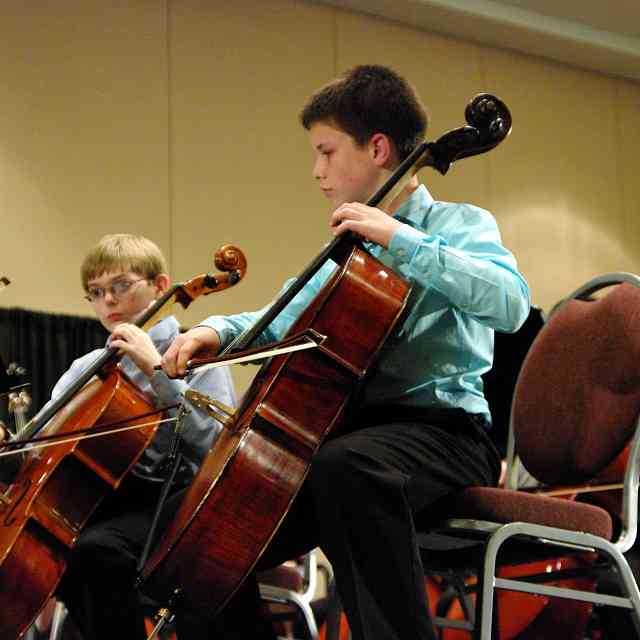This might seem like a stretch, the claim in this title. I mean, your teacher is fabulous, of course: friendly, knowledgeable, skilled—but a superhero? Not exactly!
What you do not realize is that she is deep undercover, like Bob Parr working in that soulless insurance office, like Diana Prince stuck in an office in a pencil skirt she can’t run in, like Clark Kent forever awkward and bumbling. Her superpowers are locked up, and you, her student, are the key.
It sounds too good to be true, right? All this time you’ve been trying to go it alone. But you do not have to. Trouble with that 16th note passage? Frustrated with your sound? Don’t understand that new technique? You do not need to fight these villains alone. All you need to do is unlock your teacher’s secret superpowers.
In order to do that, you need to understand your role as the key. A traditional key has a series of cuts in its blade that make it fit perfectly into the lock for which it was made. The wrong cuts get you nowhere, even if you can fit the blade into the lock. In the same way, you as the key need to have some specific cuts—in this case habits—that will unlock your teacher’s superpowers.
Cut/Habit #1: Listen
Listen to your current pieces, your old pieces, and your future pieces. Daily. Listen to other music as well—anything and everything you enjoy. Explore music especially for your instrument, explore styles and genres that make use of your instrument, and then explore music in general.
Cut/Habit #2: Practice
A student who never practices affects your superhero/teacher the way Kryptonite affects Superman. Really. Ask your teacher if it’s true. It drains all their power—and it drains all yours as well. If you feel like you keep having the same lesson week after week, take a look at your practice habits. It might be because there’s not much happening between lessons.
Cut/Habit #3: Practice Daily
Yes, this is kind of a repeat of #2, except that practicing daily is such a huge step above practicing often or sometimes that it deserves its own category. Cramming the day before your lesson might unlock a single power, but consistent daily practice unlocks the whole hero—gadgets, Batmobiles, and all.
Cut/Habit #4: Talk and Ask Questions
If you are having trouble with something in your practicing, let your teacher know. If you are confused by his instructions, or by something he told you, or by something someone else told you, ask questions. Clarify. Tell him what worries or frustrates or upsets you. Tell him what you had trouble with when you were practicing, and then tell him what went well. He does try to do his share of mindreading, I promise, but when you open up to him he can use his superpowers to help you solve these problems.
Cut/Habit #5: Listen
This is not a repeat of #1. During lessons, when a teacher tells you to practice something 100 times, assume that she means it. Also assume she is not crazy. Just because something she says does not make immediate sense to you does not mean it will not work. It’s one of those superpower things—trust me.
Cut/Habit #6: Write Stuff Down
Because that is how you take seriously all the things your teacher is telling you to do. Writing it down so you can remember and do it later (and continue remembering and doing it later) is the natural and logical outcome of #5. We all have several hundred things and thoughts clamoring for our attention at any given moment, and it is ridiculously easy to forget even what seems to be the most obvious thing. Take no chances. Write stuff down.
Cut/Habit #7: Think of Yourself as a Padawan, Not a Customer
In our society, we are used to being treated first and foremost as customers, or consumers. We pay for goods and services and expect to get exactly what we pay for, just like the people before and after us in line. But music lessons do not work this way. Yes, we pay our teachers, because we value what they do and because they need to eat. And often we pay them by the hour or month or year, which on the surface makes it look like we are buying their time. What we actually get for our money varies immensely though, because a teacher is not a product or a service worker. What we get from our teachers depends on their effort, of course, but even more so on the efforts of students and their parents. The amount we invest in terms of our time, our energy, and our attitude is directly related to the results we see. This is an apprenticeship model, a mentoring relationship. In other words, you—and by extension your parents—are a Padawan and your teacher is a Jedi Master.
And there you are: with these habits—these cuts in the key—you are set to unlock your teacher’s hidden powers. Pay close attention, because when your teacher has all his superpowers unleashed life gets interesting. Playing your instrument becomes fun—you learn new skills, you get better at the old ones, you get new lesson assignments. You blaze through repertoire and exercises and etudes, your mind sharpens, your musicality leaps tall buildings. In fact, you kind of start to become something of a superhero yourself, as if by magic. All you need is the right key.








